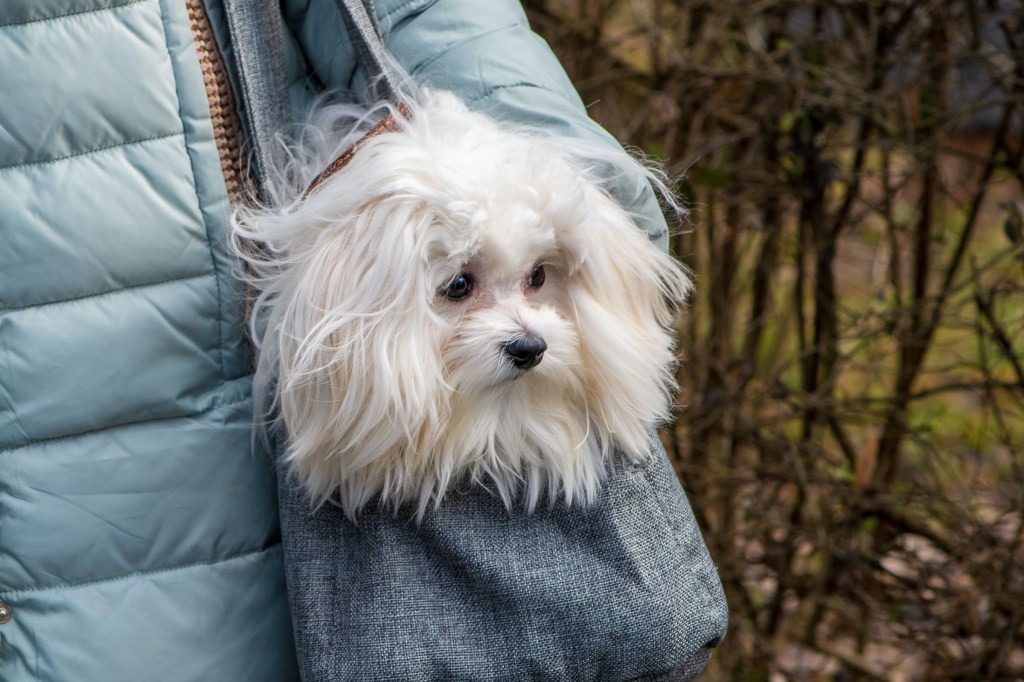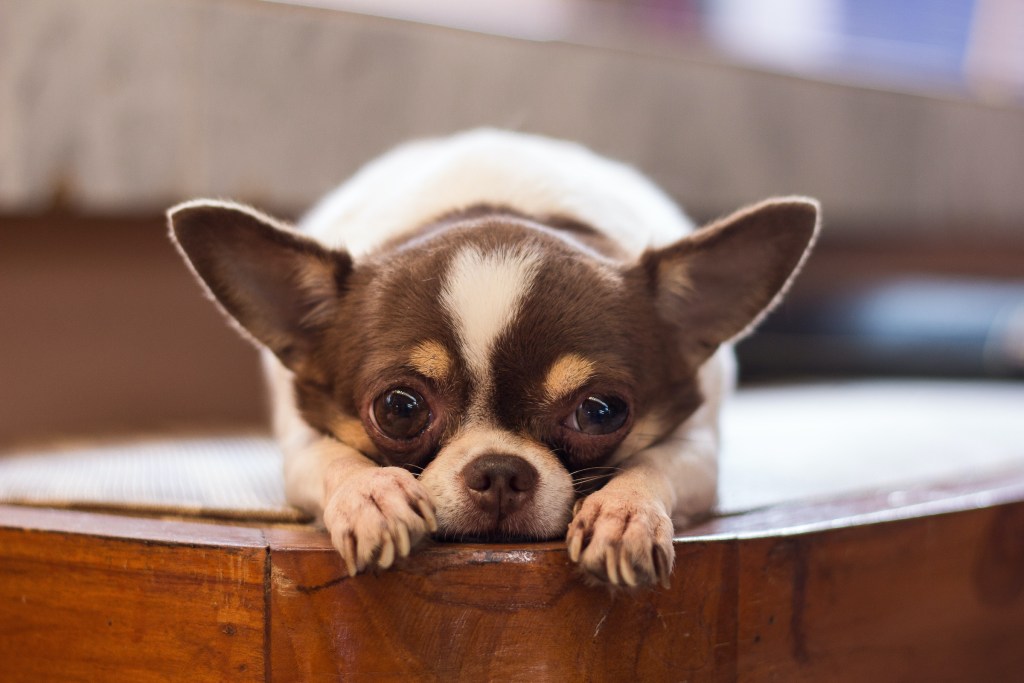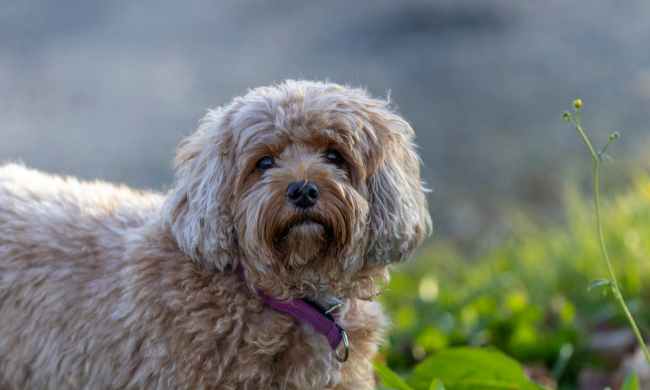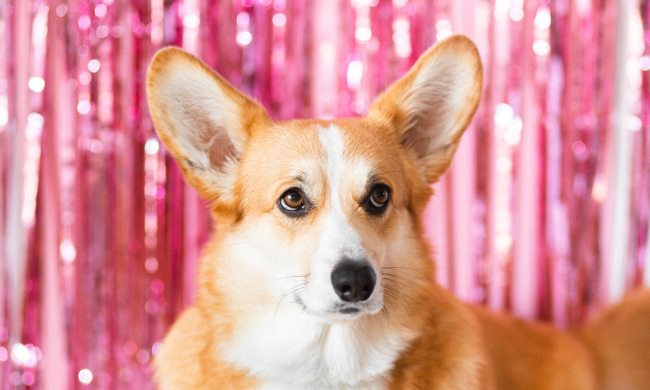When most people think of small-breed dogs like the Chihuahua or Maltese, they tend to think of cute, spoiled, and reactive little pups with barks just as big as their bite. Traits like shaking and aggression are often associated with small dogs, too, which leaves many pet parents and canine behavior experts wondering: Why is my small dog anxious? And is it something to worry about?
If you’re the owner of a stressed-out pup, there’s no need to stress yourself out as well. By addressing small-dog anxiety, you can not only nip the unwanted behaviors in the bud but teach your four-legged friend some calm and confidence, too.

Why is my small dog anxious?
As much as small-dog lovers want to think that the stereotypes are based on fiction, there is actually some truth to the tale. A 2013 study from the University of Veterinary Medicine in Vienna confirmed that small breeds are seen as less obedient, more reactive, and more anxious than larger dogs. Luckily, research lead Christine Arhant and her team have begun to figure out why this is the case.
Genetic, size-based behavior differences
While dogs are aware of their size in comparison with other dogs, their aggressive reactions to situations are not from overcompensating but from anxiety.
Part of what makes small dogs so reactive is an instinctual fear embedded deeply into their genetics. University of Pennsylvania’s Dr. James Serpell explained to Salon, “It could be a genetic association with small body size […] It could be because little dogs feel more threatened and defensive than bigger dogs and are therefore more likely to react aggressively.”
Nature versus nurture
Although it is nearly never intentional, many small-dog owners end up reinforcing their pup’s anxious habits. Serpell further explained, “It could be that the owners of small dogs are more protective of their pets and consequently fail to socialize them properly when they are young and impressionable,” though he noted that a dog’s anxiety is normally a combination of existing fears and reinforced behaviors.
Many small dogs don’t have their behavior properly corrected because their yapping and nipping are seen as cute and grumpy. While it may appear that way, these actions are signs of stress and need to be taken care of. After all, if a larger dog were to bark and bite, it would be taken a lot more seriously, canine behavior experts agree.
When to worry about small-dog anxiety
Dogs express emotions differently than people, so it’s not always easy to distinguish signs of stress. Small breeds, however, can make this a bit easier.
Aggressive behavior
Sometimes, anxiety can manifest in aggressive behaviors, as explained above. These are normally based in fear and not a sign of a “bad dog,” though these actions should be corrected as soon as possible. Don’t wait if your pup shows behaviors like growling, biting, or barking.
Symptoms of excessive stress in dogs
Although aggression is the most urgent symptom of canine anxiety, many others can take a big toll on your dog’s well-being. According to the American Kennel Club, some symptoms of small dog anxiety include:
- Acting nervous around new people or dogs.
- Lethargy.
- Isolation or a lack of willingness to socialize.
- Lack of obedience.
- Easily spooked.
- Shaking.
- Escaping.
- Freezing.
Many of these symptoms can be caused by another problem, so a visit to the vet is a good idea if your dog seems out of sorts with no explanation.

How to help small-dog anxiety
As daunting as it may seem to teach a dog to act with confidence and calm, there’s a lot an owner can do to help their pup find their inner peace. Here are a few highly recommended techniques:
Socialization
As Serpell mentioned to Salon, many small dogs act anxiously when they are not properly socialized. This leads to the hesitation toward larger breeds at best, and a deep fear of all interactions at worst.
A calm and gradual introduction to one new person or dog is a great place to start. Make sure your anxious pup has the lead and can retreat as he feels necessary. As your dog gets comfortable, you can work your way up to larger interactions.
Training
Although many pet parents simply pick up their small dog when they act out, training your pup is key to correcting any anxious or aggressive actions that aren’t helping. Remember to use positive reinforcement, as punishment can trigger your dog’s anxiety and turn him off training.
If you don’t know where to start, basic obedience training is always useful for a dog to know. Besides, it will be so much easier to keep your dog calm when he can listen to commands like “sit,” “stay,” or even “no.”
Do activities together
Christine Arhant and her Viennese colleagues found that small dogs who participated in more activities with their owners were more likely to be obedient, confident, and anxiety-free. Both formal activities like training and casual bonding at home are important to include in your routine, so be sure to think about more than just walks and playtime.
Although many small dogs fall into the grumpy, reactive stereotype, it doesn’t have to stay that way. With some patience, work, and TLC, any dog can learn to find confidence and peace, regardless of their body size.



